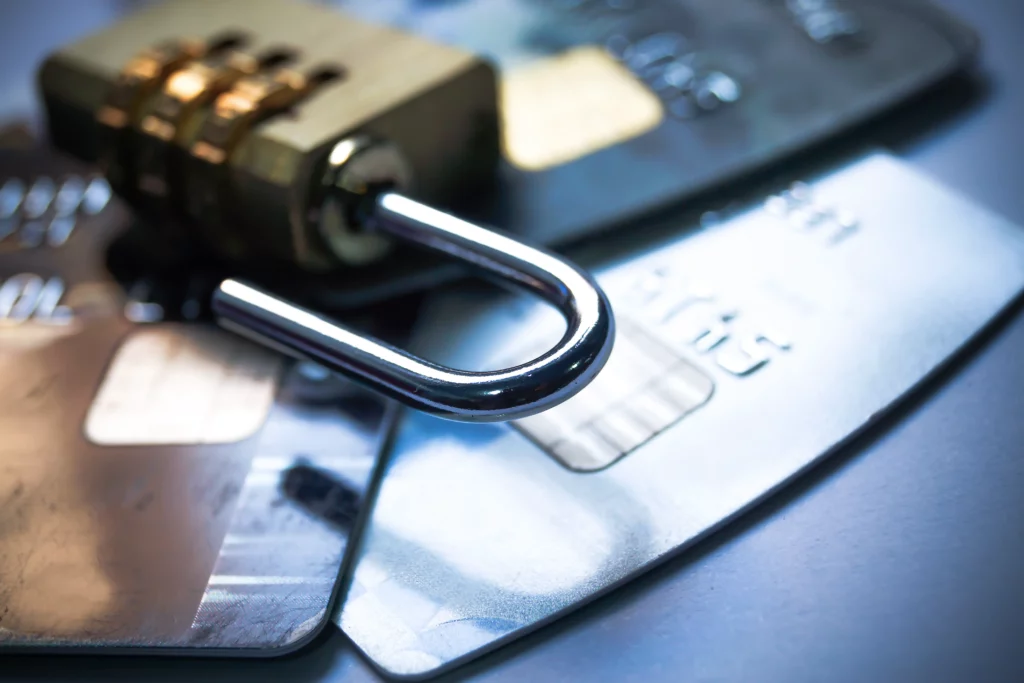Fraud


Fraud Defense Attorney in Los Angeles
One day, you’re conducting business as usual, and the next, you’re facing accusations that threaten your career, financial stability, and personal freedom. A single oversight, a business dispute, or a misunderstanding can quickly escalate into fraud charges. Suddenly, the business you built and your professional reputation are on the line.
Fraud cases in California are aggressively prosecuted, and without a skilled Los Angeles fraud defense attorney, you risk severe penalties, including hefty fines and imprisonment. At Esfandi Law Group, we fight tirelessly to protect your rights, reputation, and future.
Understanding Fraud Charges in California
Fraud is the deliberate deception of another party for financial or personal gain, often supported by financial records, expert testimony, and complex evidence. California fraud laws cover a broad range of offenses, from insurance fraud to identity theft, and the penalties vary based on the severity of the crime and the financial impact on the victim.
Types of Fraud Crimes in Los Angeles
Depending on the circumstances, fraud crimes fall under either state or federal jurisdiction, or both. Below are some of the most commonly prosecuted fraud-related offenses in California.
Credit Card Fraud
Using a stolen or counterfeit credit card to make unauthorized purchases is a serious crime.
Credit card fraud can be charged as either a misdemeanor or a felony, depending on the value of the theft and any previous convictions. The penalties can include significant fines and a prison sentence of up to three years.
Insurance Fraud
It is illegal to knowingly provide false information to obtain financial benefits from an insurance company. This crime includes exaggerating injuries, staging accidents, or submitting false documentation. Convictions can result in up to five years in prison and fines reaching $50,000 or more.
Identity Theft
Using another person’s information, such as Social Security numbers, credit card data, or banking credentials, without their consent is identity theft. Due to the surge in identity theft cases in the digital age, prosecutors are actively and aggressively pursuing these crimes.
A conviction can result in three years in prison and mandatory restitution payments to the victim.
Check Fraud
Forgery includes altering checks, documents, or contracts intending to defraud. Writing bad checks or fabricating financial documents can result in misdemeanor or felony charges, with prison sentences of up to three years.
Mortgage & Real Estate Fraud
Falsifying loan applications, misrepresenting property values, or engaging in illegal foreclosure schemes can result in severe penalties. Authorities keep a watchful eye on these cases due to the thriving real estate market in Los Angeles. A conviction can lead to up to 20 years in prison and significant financial penalties.
Securities & Investment Fraud
Securities fraud includes insider trading, stock manipulation, and misleading investors. Given the financial damage these crimes can cause, federal prosecutors aggressively pursue securities fraud cases.
Convictions can lead to long-term federal prison sentences and multimillion-dollar fines.
Potential Penalties for Fraud Convictions
The penalties for fraud convictions in California depend on factors such as the amount of financial loss, the number of victims, and the accused’s prior criminal history. Potential penalties include:
- Incarceration. If the court convicts you of fraud, your sentence can range from one year in county jail for misdemeanors to decades in state or federal prison for felonies.
- Heavy fines. You can be ordered to pay hefty fines for such crimes. Fraud-related fines can range from thousands to millions of dollars, depending on the financial impact of the crime.
- Restitution payments. Courts often order convicted individuals to repay victims for financial losses.
- Professional consequences. A fraud conviction can jeopardize your professional license if you work in industries like law, finance, and real estate.
- Permanent criminal record. A fraud conviction on your record can make securing future employment, housing, or financial opportunities difficult.
As you can see, fraud convictions can have life-altering consequences. The impact of such consequences makes it crucial to have an experienced Los Angeles fraud defense lawyer who can fight to minimize the charges against you.
Defending Against Fraud Charges: Building Your Legal Strategy
A skilled Los Angeles criminal fraud lawyer can build a strong defense to challenge the prosecution’s case. Let’s look at some common defenses.
Lack of Intent
Fraud crimes require proof that you had the intent to deceive. If the prosecution cannot demonstrate intent, the court could dismiss your case.
Mistaken Identity
Law enforcement may wrongly accuse an innocent person of identity theft or financial fraud. This is especially true given the rising number of cases of criminal identity theft, where a person uses someone else’s identity for their own financial gain. A defense attorney can help by casting doubt on the prosecution’s identification evidence or by presenting evidence that shows mistaken identity.
False Accusations
Disputes over business deals, loans, or financial agreements sometimes lead to false fraud allegations. Your lawyer can investigate the claims and expose inconsistencies in the accuser’s story.
Insufficient Evidence
Fraud cases often rely on financial records and digital transactions. The charges may be reduced or dismissed if the prosecution lacks conclusive evidence linking you to the crime.
Entrapment
If law enforcement coerced or pressured you into committing fraud that you would not have otherwise committed, an entrapment defense could be used to contest the charges.
Choose Esfandi Law Group for Your Fraud Defense
Fraud cases are intricate, requiring financial experience, sound legal strategy, and a deep understanding of state and federal laws. At Esfandi Law Group, we:
- Have a proven track record of successfully defending high-stakes fraud cases, including multi-million dollar financial disputes;
- Leverage forensic accountants, digital analysts, and financial experts to challenge weak evidence;
- Negotiate with prosecutors to reduce charges, secure favorable plea agreements or case dismissals; and
- Protect high-profile clients and professionals from reputational harm through strategic, discreet defense approaches.
Your freedom, career, and financial future are at stake. Let our Los Angeles lawyers for fraud cases fight for you.
Secure Your Defense and Protect Your Future
A fraud charge can destroy your livelihood and reputation. Shouldn’t you have a top Los Angeles fraud lawyer doing everything to protect it? Contact us today for a confidential consultation and get the aggressive, strategic, and tailored defense you deserve.
FAQs About Fraud Charges
What Is the Difference Between Fraud and Theft?
Fraud involves deception or misrepresentation to obtain money, goods, or services. Theft typically consists of taking property without consent.
Fraud often includes an element of trickery to obtain financial gains. Theft is a more direct taking of property.
Can Fraud Charges Be Dropped Before Trial?
Yes, they can. If the prosecution lacks strong evidence, key witnesses are unreliable, or law enforcement violated your rights during the investigation—your attorney may get the charges dismissed before the case reaches trial.
Can I Face Both State and Federal Fraud Charges for the Same Offense?
If your alleged fraud crime violates both California and federal laws, you may face dual prosecution, meaning both state and federal authorities can charge you. This often happens in large-scale fraud cases, such as securities fraud, wire fraud, or tax fraud.
What Should I Do If I Receive a Fraud Subpoena or Grand Jury Summons?
Do not ignore it or respond without consulting an attorney. A subpoena often means you are either under investigation or being asked to testify in a case. A Los Angeles fraud defense lawyer can help you understand your rights and determine the best course of action.
Can I Be Convicted of Fraud If I Didn’t Personally Receive Any Money?
You can be charged and convicted if you participated in or facilitated the fraudulent act, even if you did not personally benefit. The law focuses on intent and involvement, not just financial gain.
Can My Attorney Negotiate a Plea Deal in a Fraud Case?
Yes, your attorney can negotiate with the prosecutor to get an advantageous plea deal in a fraud case. Plea agreements often result in reduced charges, minimized sentencing, or alternative penalties, such as probation or restitution.
Resources
Reliable Knowledgeable Representation
Seppi Esfandi is a top-ranked Los Angeles Criminal Defense Attorney with the experience you need and want when charges of bank fraud are brought against you. Contact our office today to schedule a case review. We can help you to determine the best course of action and the next steps for your specific case.

